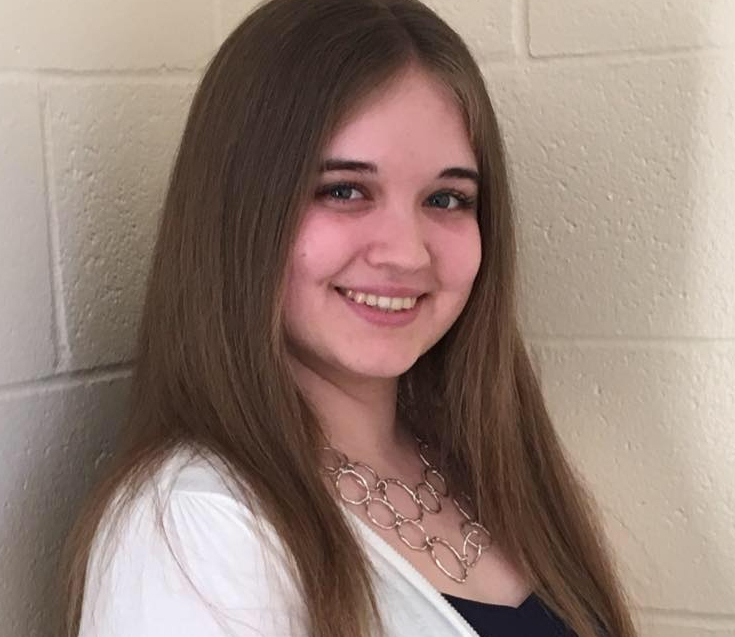Are you drawn to a “bad guy” or a “bad girl”? Or maybe you’re attracted to the type of person with whom your personality clashes. Do you find yourself breaking up for the same reasons over and over, wondering how you ever fell for that person in the first place?
Some broken part of our human nature seems to crave things that are wrong for us. If you find yourself drawn to potential romantic partners who are wrong for you, here are seven possible reasons why.
1. They Reflect Trauma from Your Childhood
You may have had a difficult relationship with your parents, or you may have had the best relationship ever. Either way, psychologists say that we automatically seek out people who embody our parents’ or guardians’ worst traits.
“What shapes who we choose as a romantic partner is our relationships with our primary caretakers as kids,” Los Angeles-based psychologist Sarah Schewitz said in this interview. “We’re unconsciously searching for somebody who has a conglomeration of negative and positive traits of the caretakers from our childhood.”
In this article for Psychology Today, psychotherapist Ken Page explains, “Even though we may be adults, we often have unresolved childhood hurts... Our psyche seeks to recreate the scene of the original crime, and then save us by changing its ending. The child in us believes that if the original perpetrators—or their current replacements—finally change their minds, apologize, or make up for that terrible rupture of trust, we can escape from our prison of unworthiness."
Related to this is the tendency to model our relationships off of what we're used to seeing. If your parents entered into toxic relationships and never owned this/talked about it, then you are likely to enter into the same type of relationships. Even if you swing to the other end of the pendulum, i.e. your mom tended towards aggressive men so you seek out passive, closed-off men--the damage is still the same.
If you find yourself attracted to a certain type of person, you may need to address underlying issues from your past.
2. They Are a Quick Fix for Your Current Needs
The first need that comes to mind is loneliness. Have you ever dated someone not because you cared about them, or even liked them, but because you just needed someone in your life?
Or maybe you’re craving excitement. Does your life feel mundane, boring? Maybe that person is an escape from the daily grind. Are you ignoring toxic behavior because dating this person gives you a thrill?
Maybe your family or friends are putting pressure on you, and you snatched up the first person who came along. Or maybe you’re sick and tired of their pressure, so you dated someone you knew they wouldn’t like as an act of rebellion.
Before dating, ask yourself: why am I doing this? Do I care about getting to know this person? Am I interested in the possibility of forming a relationship? Or is there a need inside me that I’m hoping to fulfill by using them?
3. Media Tends to Portray Toxic Relationships Positively
Stories are based on conflict. Healthy relationships with clear communication and mutual respect don’t make very exciting stories. As a result, you’re not going to see them very often in media.
Without calling out any particular movies, books, or TV shows, how many plots revolve around a brooding, emotionally distant hero (or even villain) who only has a soft spot for one specific person? Like the characters, we like to feel special. The idea of being the one person an otherwise heartless being cares about is attractive.
We like the idea of passion. Media often portrays “passionate” lovers as just as quick to fight, sometimes violently, as they are to express their love. If they got along, how would that drive the plot?
“True love” sells. We love stories of “true love” overcoming all obstacles—including obstacles like evil or abusive partners, poor communication, or people who by all outside rationale do not belong together. Best yet, we love it when the pure, true love of one partner turns the other away from evil to good. The saving power of true love.
The true love of Christ does have the power to save. But human love doesn’t cut it. Media confuses attraction for love and human attachments for the saving power of Christ.
When we’re bombarded with depictions of unhealthy relationships, we begin to believe they’re normal.

Photo Credit: ©GettyImages/Prostock-Studio
4. You’re Drawn toward People You Think You Can Fix
This goes along with part of the savior complex we often see in the last point. Especially as Christians, it can be tempting to attempt “missionary dating.”
A person is good-looking, smart, funny, everything you wanted in a partner—but they aren’t a Christian. But maybe, if they grow to love you, you can change their mind.
Or there are some things about the person that you really like, but others that you know are problematic. With time, you hope to change those things.
People are capable of change, and it’s good to help others, but a romantic relationship is not the place for it. Often, they are likely to influence you as much as you influence them.
Everyone has flaws. However, in romantic relationships we must ask ourselves whether, if the person never overcame this issue, would we be content to live with it? (There’s a big difference between someone who snores and someone who isn’t a believer).
Often, if your tendency is to want to fix the people you're in relationships with, romantic or not, this reflects a deeper wound of not feeling worthy or loved. You're trying to find your worth in saving the other person. But codependency is not a healthy way to go about relationships.
This is also something you may subconsciously model after your parents. There's nothing wrong with having hope for people, but if your relationships drain you more than fill you, it's time to do some introspection about your true motives.
5. The Challenge Gives You a Sense of Worth
For some of us, being liked, or even loved, may not feel like quite enough. We want to feel special. This may lead to the desire to woo those who are uninterested or emotionally distant.
We mentioned in the section on media that a common trope is a villain who has a soft spot only for their true love. For those struggling to feel special or worthy, it’s tempting to try to fight for a special, exclusive place in someone’s life.
However, dating someone with an icy or distant exterior in hopes of cracking it doesn’t usually end well. It will leave you frustrated, possibly feeling even worse about yourself as the person withholds the care and attention you seek.
Instead, the greater issue may be realizing how special you are to Jesus, and developing a reciprocal relationship with someone.
6. You Don’t Feel Like You Deserve Better
Maybe your last relationship ended poorly. Maybe you were belittled growing up. Maybe you’re insecure about your appearance, your lifestyle, your financial status. Whatever it is, you may feel like you’re lucky to have a relationship at all.
You may find yourself making statements like, “Well, they’re so much better than the last person I dated,” or “At least I have someone.” This sort of mentality makes you willing to put up with toxic people.
Finances, beauty, social class, etc. don’t necessarily matter, but how a person treats you is important. Instead of settling for a relationship that is less than optimal, patiently seek God’s best for you—and enjoy singleness while you can!

Photo Credit: ©GettyImages/Damir Khabirov
7. You’re Searching for Worth outside of Christ
It’s hard not to place our worth in what other people think of us. This can hit us twice when it comes to dating. First, we feel the need for a partner to confirm to ourselves that we are worth loving. And second, we feel the need for a partner to show others that we’re worthy of being loved.
Do you need someone interested in you, flirting with you, to feel validated? Do you look at other happy couples and feel insecure?
It’s hard not to fall into this trap. When we’re feeling the need for love and affirmation, we can instead turn to the Lord and rest in his endless, unconditional love.
You are wonderfully made. Psalm 139:13-14: “For you created my inmost being; you knit me together in my mother’s womb. I praise you because I am fearfully and wonderfully made; your works are wonderful, I know that full well.”
Christ considered you worth dying for. Romans 5:7-8: “Very rarely will anyone die for a righteous person, though for a good person someone might possibly dare to die. But God demonstrates his own love for us in this: While we were still sinners, Christ died for us.”
He rejoices over you with singing. Zephaniah 3:17: “The Lord your God is with you, the Mighty Warrior who saves. He will take great delight in you; in his love he will no longer rebuke you, but will rejoice over you with singing.”
You are special to God. 1 Peter 2:9: “But you are a chosen people, a royal priesthood, a holy nation, God’s special possession, that you may declare the praises of him who called you out of darkness into his wonderful light.”
God Himself considers you His child. 1 John 3:1: “See what great love the Father has lavished on us, that we should be called children of God! And that is what we are!”
He will never forget you. Isaiah 49:15: “Can a mother forget the baby at her breast and have no compassion on the child she has borne? Though she may forget, I will not forget you!"
How Can You Stop the Cycle?
Realizing the potential problems is the first step to pursuing healthy dating habits. Consider your motives, outside influences, and what you’re truly seeking before jumping into a relationship.
Recognize your areas of weakness. Do any of the seven issues above apply to you? Recognize where your struggles are and keep an open mind to whether you are drawn to a person from pure motives or because of some other unconscious need or unhealthy thought process.
Work on yourself first. Becoming who you’re meant to be is more important than finding who you’re meant to be with. If you’re focused on your own relationship with God, you will be in a better place to make clear judgments.
Ask the Lord’s guidance. It may seem obvious, but pray about your dating life. Ask God to give you wisdom. Meditate on Scripture and bring decisions to the Lord in prayer.
Seek counsel from trusted mentors. This may be a pastor, an older Christian, or someone you trust who has a godly relationship with their spouse. You are not the first to walk the road of dating, so glean wisdom from those who have navigated the trenches successfully.
No matter how careful you are, some relationships will work out, and some won’t. However, if we seek God’s will first, we may glorify Him regardless of the outcome.
Photo Credit: ©GettyImages/KatarzynaBialasiewicz
 Alyssa Roat studied writing, theology, and the Bible at Taylor University. She is a literary agent at C.Y.L.E., the publicity manager at Mountain Brook Ink, and a freelance editor with Sherpa Editing Services. She is the co-author of Dear Hero and has 200+ bylines in publications ranging from The Christian Communicator to Keys for Kids. Find out more about her here and on social media @alyssawrote.
Alyssa Roat studied writing, theology, and the Bible at Taylor University. She is a literary agent at C.Y.L.E., the publicity manager at Mountain Brook Ink, and a freelance editor with Sherpa Editing Services. She is the co-author of Dear Hero and has 200+ bylines in publications ranging from The Christian Communicator to Keys for Kids. Find out more about her here and on social media @alyssawrote.